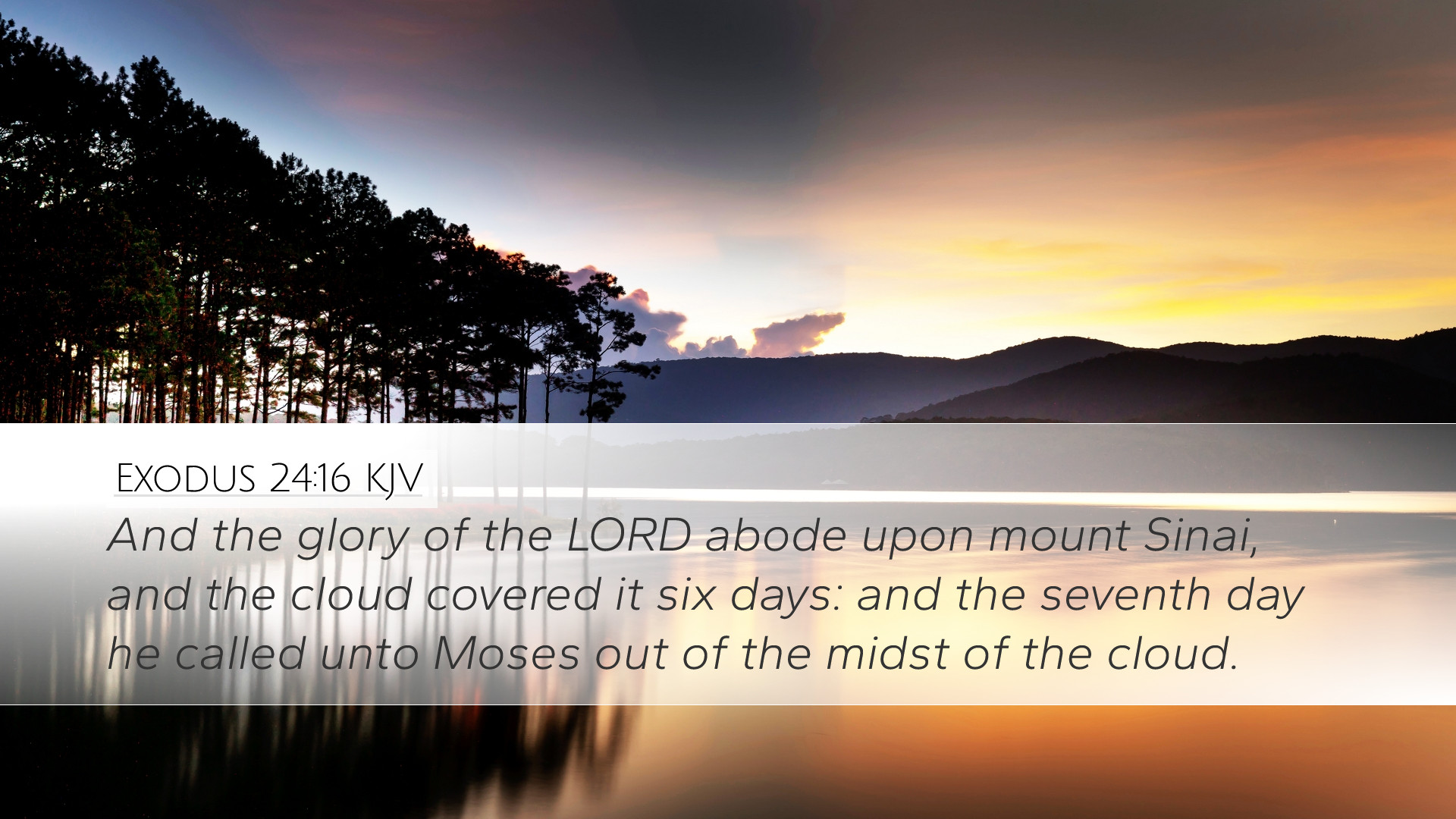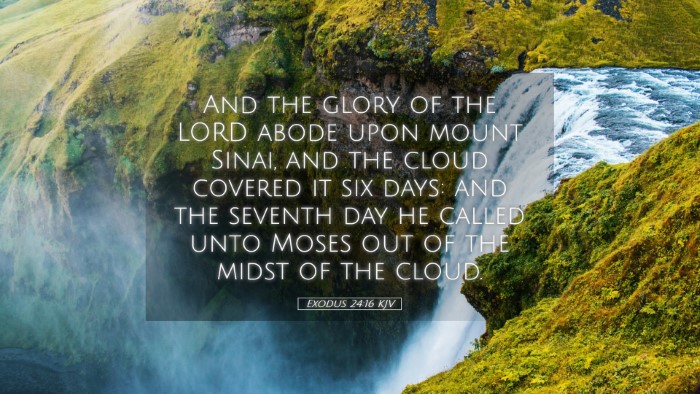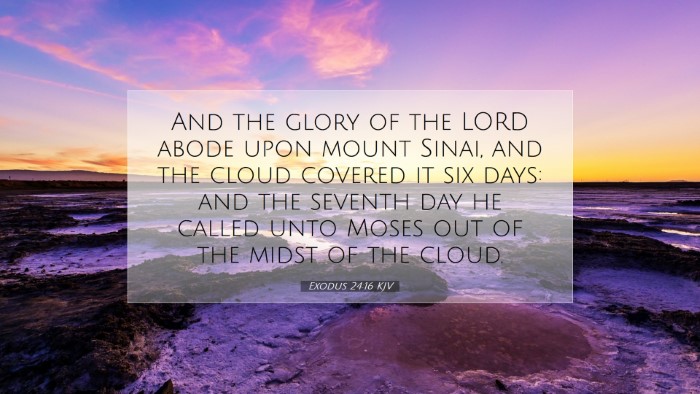Exodus 24:16 - Commentary and Exegesis
Verse: "And the glory of the LORD abode upon mount Sinai, and the cloud covered it six days: and the seventh day he called unto Moses out of the midst of the cloud."
Introduction
Exodus 24:16 is a pivotal verse that encapsulates the divine encounter between God and Moses on Mount Sinai. This moment signifies not only the establishment of the covenant with Israel but also the intense presence of the Almighty, represented by His glory and the cloud. The following commentary integrates insights from various public domain sources including Matthew Henry, Albert Barnes, and Adam Clarke to unpack the theological significance and implications of this verse.
The Glory of the LORD
The term "glory" here refers to the visible manifestation of God’s presence. As noted by Matthew Henry, the glory of the Lord is a concept deeply rooted in the Hebrew understanding of God's majesty and holiness. His glory often appears in a tangible form that elicits reverence and awe.
Albert Barnes elaborates that the glory resting upon Mount Sinai indicates the divine endorsement of the covenant that is about to be revealed. It demonstrates God's willingness to dwell among His people, a theme that permeates the entirety of the Biblical narrative.
The Significance of the Cloud
-
Symbol of Protection: The cloud serves as a protective barrier between the holiness of God and the sinful humanity of the Israelites. As Adam Clarke remarks, the cloud signifies the approach of divine revelation, enveloping Moses and creating a sacred space where communication with God can occur without the destructive consequences of divine holiness.
-
Presence and Guidance: Throughout biblical history, the image of the cloud represents God’s guiding presence (Exodus 13:21-22). It emphasizes the ongoing relationship between God and His chosen people, as they journey through life with His guidance.
-
Duration of Six Days: The six-day period amplifies the seriousness of the divine communication and invites reflection on the importance of waiting on the Lord. As Matthew Henry comments, this indicates that God desires sincere engagement and preparation before receiving His commands.
-
The Seventh Day: God’s calling Moses on the seventh day symbolizes completion and rest. Albert Barnes connects this to the biblical theme of Sabbatical rest, illustrating that significant spiritual encounters often lead to divine workings that usher both activity and rest.
The Divine Call to Moses
The calling of Moses represents an invitation into deeper fellowship and revelation. Adam Clarke highlights that this moment marks the transition from a passive to an active role for Moses, who now stands as the mediator between God and Israel. This foreshadows the later role of Christ as the ultimate mediator.
The phrase "out of the midst of the cloud" indicates that the divine communication descends into the earthly realm, signifying God’s willingness to engage with humanity. Matthew Henry emphasizes that this was an extraordinary privilege for Moses, showcasing God’s grace as He reveals His plans to those He calls.
Theological Implications
-
Covenant Relationship: This moment is foundational for understanding God’s covenantal relationship with Israel. Albert Barnes notes that through this glorious manifestation, God establishes an unconditional bond that offers both responsibility and blessing.
-
Understanding the Divine Presence: The cloud and the glory serve as reminders of the complexities of divine presence. Matthew Henry articulates that understanding God’s presence is essential for spiritual growth and discernment.
-
Preparation for Revelation: The six days symbolize a period of sanctification and readiness. Adam Clarke posits that believers today must often undergo preparatory stages for divine revelation, inviting spiritual disciplines such as prayer and meditation.
-
Christ as the Fulfillment: The concept of God's dwelling and calling has profound implications for Christian theology. Albert Barnes sees this as a foreshadowing of Christ’s incarnation, where God dwells among us, signifying an ultimate fulfillment of God's promises.
Conclusion
Exodus 24:16 serves as a encapsulation of Israel’s divine encounter with God. The multi-layered meanings contained within this verse speak to the heart of God’s relationship with His people. It invites pastors, theologians, and Bible scholars to meditate on the glory of God, the significance of the cloud, and the earnest calling into divine communion. Reflecting on this passage enhances our understanding of God’s holy presence and invites us into deeper covenantal engagement with Him.


